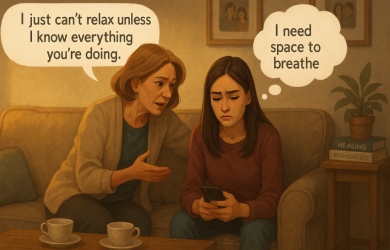10 Telling Signs That Restoration Counseling Can Help You

Unlock Daily 30-Sec Tips for a Happier Relationship
👉 Subscribe FREEKey Takeaways
Marriage.com AI Quick Summary
Restorative counseling is a therapeutic approach that focuses on facilitating healing, growth, and positive change by addressing emotional, psychological, and relational challenges.
Unlike traditional counseling methods that focus on symptom reduction or problem-solving, restorative counseling emphasizes restoring well-being, balance, and harmony in an individual’s life.
Keep reading to learn more about restoration counseling and ways that it can help you and your relationship.
What is restorative counseling?
Restorative counseling operates under the premise that individuals have an innate capacity for healing and growth.
The therapy is centered around creating a safe and supportive environment where clients can explore their emotions, thoughts, and experiences. This approach aims to empower clients to tap into their strengths and resources to restore their mental, emotional, and relational well-being.
How can restoration therapy help?
Know how this approach facilitates healing, strengthens relationships, and leads to personal growth in profound ways, offering lasting emotional and mental benefits:
1. Promoting self-awareness
Restorative counseling encourages individuals to become more self-aware, helping them understand their emotions, behaviors, and thought patterns. This self-awareness leads to personal insight and growth.
2. Enhancing relationships
Restoration therapy emphasizes repairing and strengthening relationships. Through open communication and understanding, people can rebuild trust, empathy, and connection with their loved ones.
3. Resolving trauma
Restoration counseling provides a safe space to address past traumas. By processing and integrating these experiences, individuals can find healing and reduce the negative impact of trauma on their mental health.
4. Cultivating resilience
Restorative therapy helps individuals develop coping skills and resilience to better deal with life’s challenges. With the help of this, people learn to adapt and thrive in a much better way, even in the face of adversity.
5. Developing positive change
Restoration therapy aims at creating positive, sustainable change in various aspects of a person’s life. This also includes personal growth, behavioral changes, a calmer mind, and a more balanced and fulfilling lifestyle.
Healing through restoration therapy: Addressing trauma and mental health challenges
Restoration therapy, a profound approach to mental well-being, offers a path to healing from trauma and overcoming various mental health challenges. In a world where many individuals grapple with the aftermath of traumatic events and face mental health issues, restoration therapy stands as a beacon of hope and healing.
Trauma, whether stemming from childhood experiences, accidents, or other distressing incidents, can leave deep emotional scars that impact daily life. Restoration therapy provides a safe and nurturing environment for individuals to address these traumas.
Therapists skilled in this approach guide clients through the process of acknowledging and understanding their trauma, resilience and cultivating coping mechanisms. By confronting and processing trauma, individuals gradually reclaim their sense of self, find solace, and regain control over their lives.
Mental health challenges, ranging from anxiety and depression to more complex disorders, can also be effectively addressed through restoration therapy. Unlike conventional approaches that may primarily focus on symptom management, restoration therapy delves deeper.
Restorative therapists assist clients in uncovering the root causes of their challenges, allowing for a more comprehensive understanding of their emotional and psychological landscape.
This holistic perspective enables individuals to develop personalized strategies for managing symptoms and promoting emotional regulation and mental well-being.
One of the hallmarks of restoration therapy is its emphasis on resilience-building. Through guided therapeutic techniques, individuals learn to navigate the complexities of their emotions and thoughts.
They acquire tools to cope with adversity, enhance their problem-solving skills, and develop a greater capacity to bounce back from life’s challenges. This newfound resilience not only helps in addressing trauma and mental health challenges but also equips individuals with life skills that extend to various spheres of their lives.
Moreover, restoration therapy acknowledges the interconnectedness of relationships and mental health. Strained relationships can exacerbate emotional distress and contribute to mental health challenges.
Restoration therapy provides a space for individuals to address relational conflicts, communicate openly, and develop empathy. By working through relationship issues, individuals can experience profound healing and growth, leading to improved overall well-being.
10 signs that restorative counseling could be beneficial for you
Knowing the signs that point to the potential benefits of restoration counseling can provide valuable insights into whether this therapeutic approach is the right fit for your personal growth journey.
1. Persistently overwhelming emotions
If you find yourself frequently overwhelmed by intense emotions such as anger, sadness, or anxiety, and these emotions are affecting your ability to function and enjoy life, restoration counseling can provide you with tools and strategies to manage and regulate your emotions in a healthier way.
2. Difficulty coping with trauma
If you have experienced traumatic events in your life and are struggling to cope with the resulting emotional and psychological aftermath, restoration family counseling can offer a safe and supportive space for you to process your trauma, reduce its impact on your daily life, and work towards healing and recovery.
3. Strained relationships
If your relationships are marred by communication breakdowns, unresolved conflicts, or a lack of emotional connection, restorative counseling can help you and your loved ones rebuild trust, improve communication skills, and develop healthier relationship dynamics that build understanding and mutual support.
4. Low self-esteem
If you frequently struggle with feelings of inadequacy, self-doubt, or a negative self-image, restoration counseling can help you explore the underlying causes of these feelings, challenge negative self-perceptions, and cultivate a stronger sense of self-worth and self-acceptance.
5. Feeling stuck
If you find yourself trapped in repetitive patterns of behavior, thoughts, or emotions that hinder your personal growth and progress, restoration counseling can assist you in identifying these patterns, understanding their origins, and developing strategies to break free from them and create positive change in your life.
6. Anxiety or depression
If you are experiencing symptoms of anxiety or depression that interfere with your daily functioning and overall well-being, restoration counseling can provide you with effective coping mechanisms, stress reduction techniques, and support to manage these mental health challenges.
7. Unresolved grief
If you are struggling to cope with the loss of a loved one, a significant life change, or any other form of grief, restoration counseling can guide you through the grieving process, help you find meaning and acceptance, and provide a space to express and process your emotions.
8. Lack of direction
If you are feeling lost or uncertain about your life path, career goals, or personal aspirations, restorative counseling can help you clarify your values, set meaningful goals, and develop a plan to move forward with purpose and direction.
9. Unhealthy coping mechanisms
If you find yourself relying on harmful coping mechanisms such as substance abuse, self-harm, or avoidance, restoration counseling can assist you in understanding the underlying triggers for these behaviors and provide healthier alternatives to manage stress, pain, and challenging emotions.
10. Desire for personal growth
If you are motivated to enhance your overall well-being, develop your strengths, and unlock your full potential, restoration counseling can support you on your journey of self-discovery, personal growth, and transformation by providing guidance, self-reflection exercises, and strategies for positive change.
Commonly asked questions
Curious about when restoration counseling can help? Learn about transformative growth counseling, how overwhelming emotions, trauma, relationship struggles, and more can signal its potential benefits in this FAQ section.
-
What is the goal of restoration therapy?
The goal of restoration hope counseling, also known as restorative counseling, is to facilitate healing, growth, and positive change in individuals’ lives.
This therapeutic approach aims to restore emotional, psychological, and relational well-being by creating a safe and supportive environment for clients to explore their emotions, thoughts, and experiences.
Unlike traditional counseling methods that might focus solely on symptom reduction, restoration therapy focuses on empowering individuals to tap into their strengths, resources, and innate capacity for healing.
The ultimate goal is to help individuals deal with challenges, develop healthier coping strategies, strengthen relationships, and achieve a more balanced and fulfilling life.
Katy Pasquariello explains how healing from childhood trauma might seem impossible, but it’s surely going to happen:
-
What is restorative treatment in psychology?
Restorative treatment in psychology refers to therapeutic approaches that emphasize the restoration of well-being, growth, and positive change in individuals who are facing emotional, psychological, or relational challenges.
The approaches like restored counseling services acknowledge that individuals have the capacity to heal and grow, and they aim to create an environment where clients can explore their feelings, thoughts, and experiences in a supportive and nonjudgmental manner.
Restorative treatment can encompass various therapeutic modalities, such as counseling, psychotherapy, and group therapy, all with the common goal of facilitating healing and transformation.
This approach is particularly useful for addressing trauma, managing mental health issues, improving relationships, and encouraging personal development.
Final takeaway
Recognizing these signs in your own life can be an important step towards seeking the support and guidance that restorative counseling offers.
Whether you are dealing with specific challenges or simply seeking personal growth, restorative counseling can provide you with the tools, insights, and empowerment you need to create a more fulfilling and balanced life.
 Tips
Tips
Write your tip or submit a video tip
All tips are reviewed before the publishing.
Share this article on
Want to have a happier, healthier marriage?
If you feel disconnected or frustrated about the state of your marriage but want to avoid separation and/or divorce, the marriage.com course meant for married couples is an excellent resource to help you overcome the most challenging aspects of being married.
Recent Articles
Related Quizzes
Unlock Daily 30-Sec Tips for a Happier, Healthier Relationship
👉 Subscribe FREE on YouTube We'd love your feedback!
We'd love your feedback!
 Expert Q&A
Expert Q&A
Ask your question related to this topic & get the support you deserve from experts.



















 Thanks for your feedback!
Thanks for your feedback!